Pest control is a common problem in property management. It may not be a pleasant subject but as a landlord or property manager it is something that can’t be swept under the carpet. If a property shows signs of unwelcome guests it is important they are dealt with as soon as possible, preferably by an expert in that particular field. In this blog we discuss some of the issues often found in the UK and how best to deal with them. 
Ants
Problems with ants in properties and gardens can often be dealt with using off-the-shelf ant killer products. For small infestations this will usually do the trick, however should your properties suffer from large or multiple infestations of Pharaoh’s, Ghost or Fire ants they may need to be professionally dealt with. If ants are present in any areas where food is prepared, it is in your best interest as a landlord or property manager to handle the infestation immediately.
Ants nests often look like a small pile of fine soil or dirt. However, certain ant species like to make their home in the walls of buildings or other difficult to reach areas. Professional ant treatments will not only be able to tackle areas which are hard to handle with DIY treatments, but will also target the specific species in order to solve ant infestations as quickly as possible. This will help to preserve the value of your property and keep your tenants happy.
Bed bugs
Due to increasingly warmer winters, bed bugs are active all year round and are becoming more common in properties. These tiny very resilient insects often live in warm, dark places such as inside mattresses and bed bases, in carpets, furniture, skirting boards and any cracks or crevices of a property. Indication signs that a property has a bed bug infestation include bites on the persons skin, small clusters of dark excrement, and sometimes even a scent of almonds. 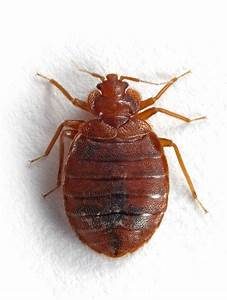
If you are a landlord or relocation company managing a property with bed bugs, we recommend that treatment is commenced immediately. If left untreated bedbugs will multiply and can be manually transported from property to property especially if infested furniture is moved or even in luggage. This is not something that can be treated with home remedies, the only effective course of treatment for bedbugs is to have them professionally treated.
Fleas
Most people associate flea infestations with pets. However, fleas can also be an issue in properties which have merely had exposure to animals (whether this be from previous tenants, visitors with pets or household pests such as rats or mice). The identification of fleas in a pet-free property can prove somewhat difficult. Identifying a flea infestation can be somewhat of a challenge, which can mean their presence can go unnoticed for a time, allowing the fleas time to multiply. Usually the first sign of an infestation are clusters of bites to the occupants, often on their legs. In order to treat fleas, it is not only essential to get rid of the current infestation, but to identify the original source to avoid any more occurring in the future. Here at GMC we have a network of UK wide pest control contractors who can eradicate any flea infestations.
Mice
Finding mice in your home can be very distressing as they spread disease. This poses an obvious health risk to all inhabitants especially the young and the elderly. Food preparation areas need particular attention as mouse urine and faeces can contaminate food stuffs and transmit diseases such as Hantavirus and Salmonellosis. In addition to the health risks, mice can damage property with their constant gnawing. They can damage pipes, wiring (potential fire hazard), doors, floorboards and will shred soft items like bedding, material etc to use for nesting.
Obvious signs to look out for are dark droppings the size of small grains of rice, shredded material, sounds of scratching and signs of gnawing. Whilst there are DIY solutions, it is recommended that a professional pest control officer is called in to deal with a mouse infestation. The problem is usually resolved with lockable bait boxes so that children and pets cannot reach the poison, however you will need to be vigilant for signs that the poison is being taken – changes in the colour of the droppings, and take care that pets do not find any dead mice in the property.
Rats
As rats can carry many harmful diseases, if a property has a rat infestation it needs to be dealt with immediately. In addition to the health implications, rats can also cause a great amount of structural damage. Rats have been known to cause electrical fires, flooding and gas leaks by gnawing through electrical cables and pipes. With the ability to make their home in almost any environment that provides food, water and shelter, rats can make their way into roof spaces, basements, wall cavities and under floorboards.
Signs to look out for a rat infestation include scratching noises, shredded material such as insulation or paper used for nest making and droppings that are dark brown and shaped like large grains of rice. Rats are nocturnal so it is often easier to spot signs of an infestation before actually seeing a rat. It is possible to be proactive in preventing rat infestations. Reduce hiding places by clearing clutter both inside the home and out. Also, ensure any holes in exterior walls or roof cavities are filled and keep all household waste covered. Rats are highly adaptable and breed rapidly – in only weeks, so we recommended you use the services of a professional pest controller as soon as you are aware you have a problem.
Spiders
Fortunately, most spiders found in the UK are not considered hazardous to health. However, tenants (especially those with arachnophobia) may not look favourably upon properties with a spider infestation. Spider webs are an obvious sign that a property has spiders, and new webs appearing frequently can suggest there are more spiders than average. If you provide properties for relocation clients or as holiday lets, having properties regularly cleaned can often resolve small scale spider problems. However, if tenants find a property has an excessive number of spiders professional pest control services are available.
Wasps and wasp nests
Wasps will usually enter a property through an air brick, under the soffit board or via cracks in the mortar. Once tenants (or a property inspector) identify a wasp nest it must be dealt with by qualified pest control technicians as once wasps become agitated, they will become aggressive. Wasps are a nuisance at the best of times, but if your property contains a large wasp infestation it can make it not only unpleasant, but uninhabitable for your tenants.
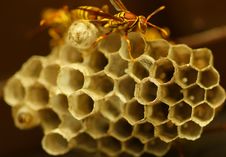 Wasp nests start to become active in the late spring, after the young queen and a worker bee have undergone a winter of semi-hibernation in what is referred to as a ‘satellite nest’. As this nest is built up occupants will usually start to notice the presence of wasps either in the garden, or in the property. Wasp nests are most commonly found in attics, but can also be hidden in trees, bushes, sheds and garages. The only recommended course of action is to have the hive professionally treated.
Wasp nests start to become active in the late spring, after the young queen and a worker bee have undergone a winter of semi-hibernation in what is referred to as a ‘satellite nest’. As this nest is built up occupants will usually start to notice the presence of wasps either in the garden, or in the property. Wasp nests are most commonly found in attics, but can also be hidden in trees, bushes, sheds and garages. The only recommended course of action is to have the hive professionally treated.
Woodworm
Woodworm season is from May to September, and the signs of woodworm can be identified by the round or oval shaped exit holes which they leave in timber, crumbling or weakened wood and the presence of woodworm larvae and beetles. If left untreated woodworm can seriously weaken the timber of a property, causing structural damage. It is essential that any signs of woodworm are assessed by experienced surveyors, and that action is taken to remedy the problem. Here at GMC we have a network of UK wide property contractors and are able to carry out full property inspections when it comes to woodworm, damp problems or any other structural issues. We can also ensure that any recommended treatments and timber replacements are carried out efficiently without requiring the presence of the Landlord.
Need help getting rid of your unwanted pests?
Pest control can often seem overwhelming, especially if it’s a seasonal issue that affects a number of your properties at once. Luckily, here at GMC we have specialist pest control contractors to take care of any problems with insects, rodents or birds. With just one call to GMC we’ll make sure the issue is reviewed and an effective pest control treatment plan put in place. If you’ve got a pest control issue with a property in your portfolio, or simply want to find out about our other property maintenance services please don’t hesitate to give a member of the GMC team a call on 01903 721020 or email info@genmaint.co.uk.
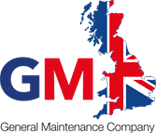
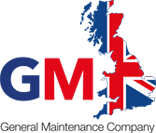 Welcome To The General Maintenance Company
Welcome To The General Maintenance Company


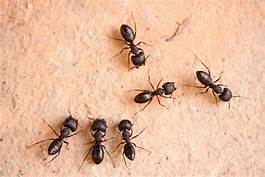
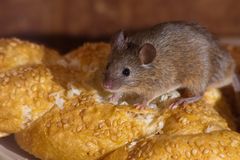
Sorry, the comment form is closed at this time.